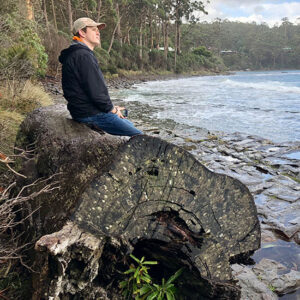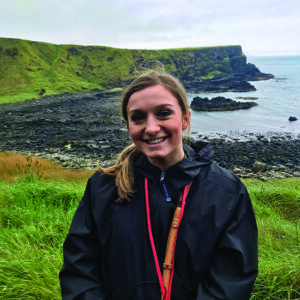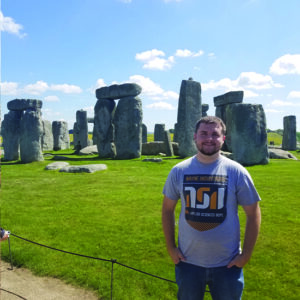Dan Flint
Flint recognizes that social sustainability, as a part of overall sustainability and related to corporate social responsibility, is under-researched but highly relevant and appreciated within the Haslam College of Business.
Aerospace & Defense, Executive Education, Full-Time MBA, Marketing, Professional Sales Forum - Faculty
Dan Flint, the Regal Entertainment Group Professor of Marketing, has spent 20 years in industry focusing on buyer/seller relationships, business-to-business marketing, corporate branding and overall consumer marketing strategy. He works to find a healthy balance between rigor and relevance in his research, focusing currently on the role of sustainability in marketing strategy and business ecosystems.
Flint recognizes that social sustainability, as a part of overall sustainability and related to corporate social responsibility, is under-researched but highly relevant and appreciated within the Haslam College of Business.
“The Haslam College of Business is on the forefront of institutions that encourage research that spans disciplines and also tackles societal impact,” says Flint. “Consumers are intelligent and look closely at firms, including their brands, cultures, processes, suppliers and partners. Integrating sustainability strategies, processes and initiatives with corporate and brand identities authentically is often easier said than done. We investigate how this can be accomplished in many contexts globally, and in particular, how working toward social sustainability and profit can been done simultaneously.”
While Flint focuses on business marketing in many contexts ranging from consumer goods to industrial, he is most appreciative of the value that focusing on a global business context can bring to thought-leadership in the college. Flint spends much of his time travelling to Italy, New Zealand, Australia, Sweden and Denmark, and enjoys leading study abroad trips with Haslam College of Business students to open their minds about and stimulate passion for understanding sales and marketing in other parts of the world.
“For example, marketing is far less intense in places like Australia and New Zealand. Italy is highly varied depending on whether you are examining large metropolitan cities like Milan or Florence or the vast majority of the nation which is incredibly fragmented. Italian business is far more relational and aesthetically driven than Scandinavian,” says Flint. “In Tokyo, Sydney, Milan or Paris – much like New York, San Francisco and Boston – consumer marketing and retailing is sophisticated and intense. In much of the world, however, marketing itself plays less of a role than face-to-face selling and relationships. In this context, the vast differences in cultural nuances including subtle yet important linguistic styles are critical to understand.”
Flint says that in many parts of Europe, the strength of customer-sales associate relationships, be they business-to-consumer or business-to-business, outweighs product characteristics in buying decisions. Ecosystems comprised of knowledge, products and services for networks that not only sell to each other, but assist each other and the societies within which they work, are the norm.
Because of Flint’s passion for global business and society, he has begun to conduct work in developing nations within Africa with innovative start-up firms that have both social and for-profit missions. Much of this work is currently focused on agricultural products and services. He also launched a non-profit called “Time to Help” which is an Internet-based knowledge ecosystem. It connects socially-minded business people with small social causes anywhere in the world that need assistance but lack the funds and awareness of larger charitable causes.
Flint loves working with Haslam students.
“Our students have become increasingly world-traveled and well-read; they’re pretty informed,” says Flint. “The standards are increasingly rising on their academic credentials. They have, on average, a great work ethic, and they’re humble.
“My focus in their development is to help them become confident and even more assertive, but remain humble. Our students underestimate their influence, knowledge and power, but they are some of the brightest potential business leaders I see. If you give our students a challenge, they lean into it. Being willing to act on making a difference is what makes students here cool. Our students at the Haslam College of Business are striving to be change-makers. Seeing the spark in their eyes, watching them believe in themselves and grow a passion for learning and making a difference fires me up.”





